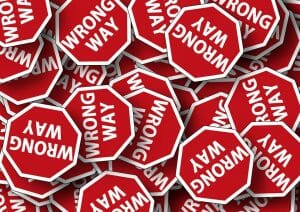Voici une fiche qui explique tout ce qu’il faut savoir sur les réseaux sociaux pour le bac d’anglais.
Depuis le début du XXIe siècle, les réseaux sociaux (“social networks”) n’ont cessé de continuer à étendre leur influence sur nos vies quotidiennes, tellement que certaines personnes ne peuvent désormais plus s’en passer. Découvre les enjeux liés aux réseaux sociaux grâce à cette fiche de Samuel Santos ! Qu’est-ce que l’on appelle un réseau social ? Quels sont les réseaux sociaux les plus utilisés de nos jours, et quelles en sont les principales utilisations ? Quels en sont leurs avantages ainsi que leurs inconvénients ?
Definition of social networks
According to the Cambridge Dictionary, a social network is defined as “a website or computer program that allows people to communicate and share information on the internet using a computer or mobile phone. More broadly speaking, it is also the “different groups of people that you know”.
Relevant examples you can use to talk about social networks
Overview of the most used social networks in 2020
Nowadays, there are literally hundreds of social networks available, both on your desktop and on your smartphone. However, six stand out in France as the most used social networks daily.
- YouTube: a video sharing-platform, on which you can also interact via comments. As estimated, around 30,000 hours of content are uploaded on YouTube every hour.
- Facebook: perhaps the best known social network that ever existed with 1.7 billion users in 2020 according to Statista. From reading the news to private messaging, to playing games, there is almost nothing you cannot do on Facebook.
- Instagram: without a doubt the most popular social network at the dawn of this new decade. Instagram allows you to share photos and videos, as well as interacting privately with other accounts.
- Snapchat: the youngest social network on the list. It became popular overnight in 2013, as it was the first social network to offer ephemeral messaging through photos with captions.
- WhatsApp: this messaging mobile application offers a more ergonomic alternative to the more classic Short Message Service (SMS).
- Twitter: allows its users to share their thoughts with their community in 280 characters or less, as well as using photos, videos and GIFs to illustrate their statements.
It is important to consider the fact that among the six social networks stated above, three actually belong to the same group. Facebook indeed acquired Instagram and WhatsApp in two multi-billion deals.
Advantages of social networks
The emergence of social networks really enhanced communication. In a globalised world, they are an excellent way of keeping in touch with your relatives and your loved ones. In the appropriate setting, it can allow you to meet and to interact with new people, whether it is purely on an informative basis or to build a new friendship.
Furthermore, social networks can be an excellent way of following the news and keeping up to date with current events. In fact, social networks have induced mass-media consumption. We can see the multiplication of digitalised press, at the expense of the traditional press, which has greatly suffered from this new form of consuming information.
Lastly, social networks are also very efficient in order to be entertained. Watching videos, playing games, communicate with your friends, watching documentaries… The possibilities are endless.
Disadvantages and dangers of social networks
One of the main concerns regarding the use of social networks is data privacy. Not knowing how to properly use a social media platform can indeed be very dangerous. For example, it is strongly advised that you mind what you post on social networks, as your future employer will definitely have a look on the Internet in order to look at your online activity.
Another issue is the data theft and fraud that social media platform are exposed to. Since it is very easy and convenient to contact anybody on such platforms, everyone should be wary of who you are interacting with. Moreover, you should also never give out sensitive information such as your password, your banking credentials to anybody, even to a trusted friend. For example, if the person you gave the information to get hacked, all of this sensitive information would definitely be compromised.
Fake news is also worth mentioning as a danger of social networks. As we have mentioned before, social networks are nowadays one of the main sources of information, especially by young people. Thus, you should always be careful about the sources you are reading form on social media. For instance, during the U.S. 2016 presidential campaign, claims have been made that Facebook had been paid to let fake news be posted on their social media platform in order to affect the outcome of the elections.
Last but not least, social media also involve a great deal of addiction and psychological issues for some users. Abusing from social networks can increase the risks of medical conditions such as depression, especially by teenagers.
Movies and series regarding social networks
In order to expand your knowledge on this topic, here are some movies and series you could watch about social media:
- The Social Network (2010);
- The Circle (2017);
- Black Mirror (2011 – ongoing).
Quotes regarding social networks
You will find below a list of quotes that you could use in your work on social media:
- “If you are on social media and you are not learning, not laughing, not being inspired or not networking, then you are using it wrong.” – Germany Kent, American journalist;
- “With the rise of social media, the level of empathy among the kids has diminished greatly, and if this continues due to our difference, then I am afraid, we will be giving rise to a planet full of sociopaths.” – Abhijit Naskar, Indian neuroscientist;
- “In general, we are a social network. I prefer that because I think it is focused on the people part of it – as opposed to some people call it social media, which I think focuses more on the content.” – Mark Zuckerberg, CEO and Founder of Facebook.
How to use these examples during your exam?
Example of a question: Social networks and social media platform are nowadays one of the main sources of information worldwide. After having defined what a social network is, please explain how this new form of media consumption affects the transmission of information. Use the topics covered in class as well as your own knowledge.
In the subject above, we can see that the question strongly focuses on the informational part of social media, rather than on its entertaining or messaging features. In order to handle this kind of questions, here is how you should proceed:
- Define the topic. Introduce your definition as well as the aspects that you will not cover later on (i.e., messaging, entertainment…);
- Advantages of social networks for information transmission;
- Disadvantages of social networks for information transmission;
- Synthesis and conclusion (your point of view on the subject related to what you have already stated before: do social media enhance or threaten information transmission?).
Be careful of using the material covered in class, rather than solely your own experience on social media. This will prevent you from potential confirmation bias and allow your answer to be more exhaustive.
Conclusion
To conclude, it is essential that you consider the multidimensional aspect of social media platforms. Do not think of it as a mere messaging service, even if this is your primary purpose for it!
Staying critical while answering during an exam is also a key aspect of any work on social media. This subject is highly debated. Therefore, it is important that you consider every point of view while answering a question regarding it.
N’hésitez pas à consulter nos fiches pour bien préparer le bac d’anglais. Bon courage !











